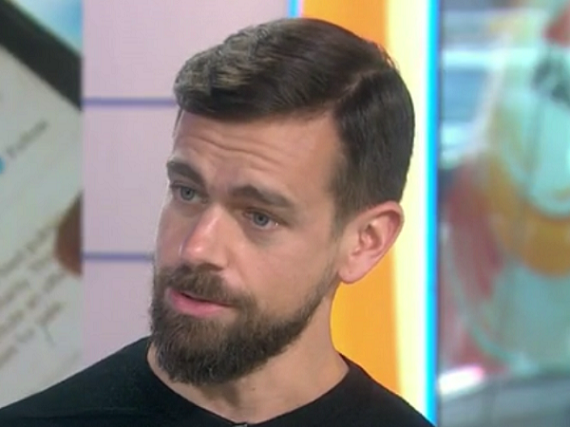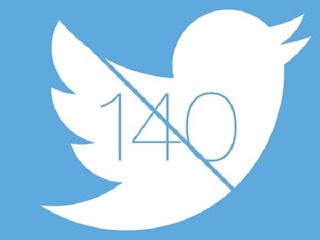
Jack Dorsey would do anything for Twitter, but he won’t do that!
Multiple reports have surfaced over the last few months that Dorsey was looking to get rid of one of the most deeply embedded, and fundamental, features of Twitter: it’s 140-character limit.
Well, Dorsey put the kibosh on that once and for all on Friday, in an interview with Matt Lauer and Carson Daly on the Today Show, in which he said that Twitter is keeping the current limit.
“140 characters, the limit. Is it staying, and if it’s going away, when?” Lauer asked him outright.
“It’s staying,” Dorsey said. “It’s a good constraint for us, and it allows for of-the-moment brevity.”
While the company is “changing a lot,” and Dorsey said he is “always going to make Twitter better,” this one change that seems to have been too much for him.
So there you go, the Twitter you know and love is staying the same.
Dorsey has always been a big believer in constraints, which he mentioned years ago in an interview with Vator CEO Bambi Francisco.
“When you limit the canvas size you get more creative. A lot of creativity comes through hard times and constrained times. It makes you strive to be your best,” he said.
If Twitter had been decided to expand the character limit, and there is every indication that the company was seriously considering it, Tweets would have showed up the same way they do currently, but with only part of them showing, and the option to expand them. That is currently how Facebook also deals with longer posts.
It was also said that Twitter might push the limit up to 10,000 characters, more than 70 times what it is currently, and which is the same number of characters that Twitter now allows for its Direct Messages. So the change would have altered the service, and how people use it, pretty heavily.
You can see Dorsey’s comment below. It occurs in the first 30 seconds of the video. The rest is him talking about the difference between what Twitter was like when it launched 10 years ago this month (spoiler: he says it’s basically the same) and how Kim Kardashian and Donald Trump use Twitter to further their own brands.
While this might be disappointing to some users, it’s likely that many other will be relieved, especially considering how people reacted when word broke in February that Twitter was getting set to alter its timeline, and start showing Tweets in order of relevancy, rather than chronologically. People who use Twitter basically had a meltdown, as they often do (People overreacting on Twitter? Unheard of, I know) Even professional writers got in on the action, basically calling it the end of Twitter as we know it.
That, too, turned out to be overblown, as Twitter made the feature opt-in, and with only a select number of out of order Tweets right at the top of the timeline.
Much has been made about Jack Dorsey’s willingness to change Twitter in order to make the service more palitable, and friendly, to new users. With these two moves, though, it seems like there are some things that will always remain sacred at the company.
Censorship
Elsewhere in the interview, Dorsey also discussed the issue of censorship, which numerous users had asked Lauer to bring up in the interview.
“Does Twitter censor the content of its users? Does it hide what it would consider inflammatory comments, whether they be social or political?” asked Lauer.
“Absolutely not. Twitter’s always been about controls. People can follow whoever they want, and it’s our job to make sure they see the most important things and the things that will matter to them,” Dorsey replied.
There are Tweets that promote violence, which do violate the company’s terms of service, but Dorsey said its up to the users to block or to mute, but the company itself doesn’t step in.
That is not entirely, true, however, as, just last month, Twitter announced that it had suspended over 125,000 accounts for threatening or promoting terrorist acts, primarily related to ISIS. So, no matter what Dorsey says, Twitter has taken actions in the past to censor some of its users.


















